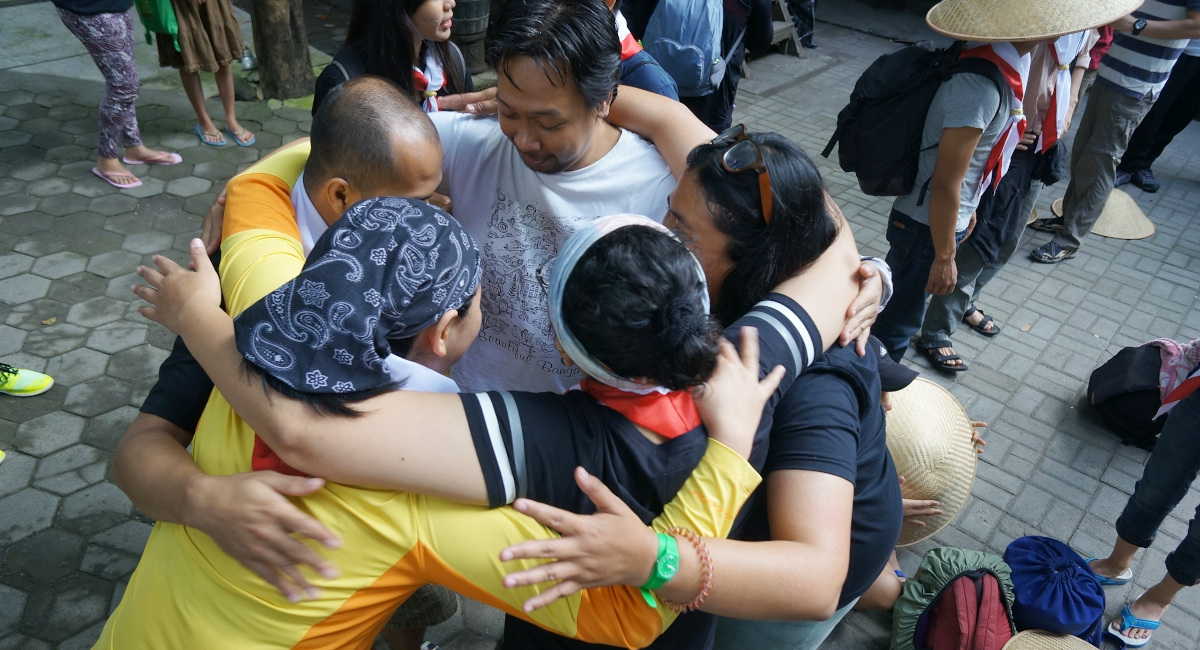 The second virtual gathering of the social ministry networks ended on 8 October, with a range of ideas on how the Jesuit conference can move forward in addressing the twin issues of poverty and ecology in Asia Pacific.
The second virtual gathering of the social ministry networks ended on 8 October, with a range of ideas on how the Jesuit conference can move forward in addressing the twin issues of poverty and ecology in Asia Pacific.
This happened after three days of plenary discussions and spiritual conversations that sought to reflect on the initiatives and responses from the Universal Church, the Society of Jesus, and the Jesuit Conference of Asia Pacific (JCAP).
In his presentation on the JCAP Apostolic Plan 2021-2025, Conference President Fr Tony Moreno SJ revisited the call from General Congregation (GC) 36 to renewal of life and mission, and the experience of synodality in journeying together under the guidance of the Holy Spirit.
He said the apostolic plan, which puts front and centre addressing the issues of poverty and reconciliation with creation, is framed by GC 36, the Ignatian Year, and the Universal Apostolic Preferences, which in themselves are an attempt at synodality.
Perhaps it was no accident that their meeting fell within days of the inauguration of the 16th Synod of Bishops, a two-year process beginning 10 October and lasting through October 2023 that seeks to involve the whole Church at diocesan, national, and continental levels through a process of listening and discernment.
“Synodality cannot begin without a listening attitude,” said Fr Moreno, underlining the need to listen to the cry of the youth, the poor, and our common home.
Two areas raised by the delegates where common action may be possible in the conference are youth and education. Among the suggestions put forward was to set up a consortium of JCAP schools or to collaborate with dioceses in offering online education to young people, particularly those coming from low-income migrant families, whose struggles have been exacerbated by the pandemic.
The issue of displacement, “othering” of migrants and refugees, human trafficking, and other human rights abuses also surfaced as an urgent concern that needs an integrated response. This underscored the importance of having a rights-based approach that is grounded in context-analysis to identify the root causes and help drive the strategies the conference can adopt to address these problems.
Another issue that emerged is the increasing isolation of young people from the Church. Collaborating with the youth is a priority of the conference and the whole Society. “Young people are disaffected by the Church. We need to be acutely aware of that so we can reach out and be sensitive to their needs,” said David White, social delegate of the Australian Province.
White was drawn to what Pope Francis has said the Church needs to be: agile, audacious, creative, dynamic, and concrete. “If we are to be these, the one group of people who can manage to do that best is young people,” he said, noting the need to engage and accompany them.
This highlights the essence of a synodal process, which at its heart is a commitment to be open, to listen, and discern with those who are excluded, marginalised, and least likely to be heard.
“We have to open ourselves to a new way of thinking,” said White. “The Church of the future is not so much a Church that preaches, not to tell how things are to be done, but a Church that accompanies people, and walks the path with them.”

